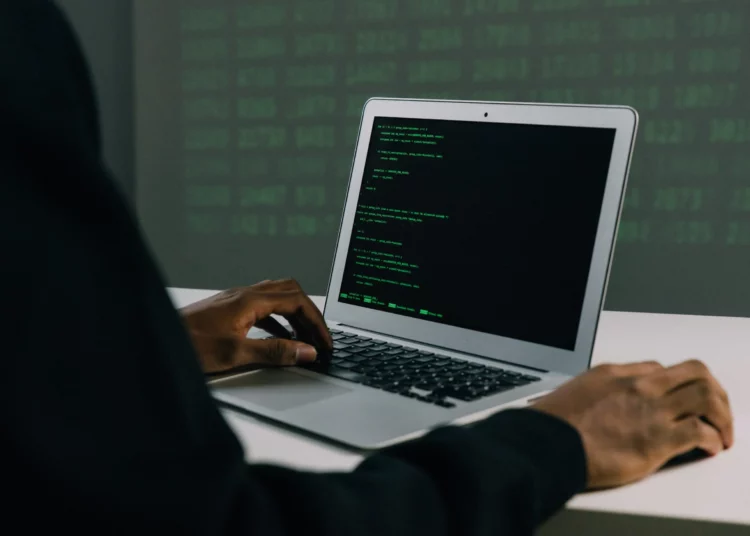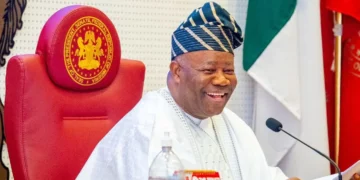Media reports claim that President Bola Tinubu has directed the Central Bank of Nigeria (CBN) to suspend the implementation of the 0.5 percent cybersecurity levy policy. This purported directive was as a result of opposition by the public to the perceived excessive recourse to taxation by this administration in the face of severe economic challenges.
Confirming this directive, Minister of Information and National Orientation, Mohammed Idris, said that the CBN was told to pause enforcement of the policy and reassess the methods for its application.
We recall that the controversial levy was imposed on Nigerians through a circular by the apex bank on May 6, stating that the deduction and collection of the cyber security levy follows the coming into effect of the 2024 Cyber Crime (Prohibition, Prevention, etc.) Amendment Act.
By the provision of this Act, 0.5 per cent was to be deducted from the value of selected electronic transactions to fund the National Cyber Security Fund, which would be administered by the Office of the National Security Adviser (NSA).
Expert opinion indicates that cyber security is the application of technologies, processes, and controls to protect systems, networks, programmes, devices and data from cyber-attacks. It aims to reduce the risk of cyber-attacks and protect against the unauthorised exploitation of systems, networks, and technologies.
Cyber security has been used as a catch-all term in the media to describe the process of protection against every form of cybercrime, from identity theft to international digital weapons.
It is estimated that cybercrime will cost the world $10.5 trillion annually by 2025 and, furthermore, global cybercrime costs are predicted to rise by almost 15 percent yearly over the next four years.
Concepts such as the pandemic, cryptocurrency, and the rise in remote working are coming together to create a target-rich environment for criminals to take advantage of. However, controversies have trailed the now suspended implementation of this section of the act.
Earlier, the House of Representatives had directed the CBN to immediately halt the implementation of the cyber security levy. The lawmakers claimed that the circular was prone to misinterpretation by Nigerians as it negates the spirit and letters of section 44(2a) of the cybercrime Act which specify those who are expected to pay the levy.
The House said section 44(2a) of the cybercrime act listed those to pay the stipulated fees as GSM and telecom companies, Internet providers, banks and other financial institutions, insurance companies and Stocks Exchange.
Also, the Socio-Economic Rights and Accountability Project (SERAP), BudgIT and 136 concerned Nigerians filed a lawsuit at the Federal High Court, Lagos, against the CBN over its failure to withdraw what it described as the patently unlawful circular.
Meanwhile, the Nigeria Labour Congress (NLC) has added its voice in opposition to the CBN’s directive and described it as another burden on the shoulders of hardworking Nigerians. The NLC president, Joe Ajaero, said imposing such a levy on electronic transactions without due consideration for its implications on workers and vulnerable segments of society is unjustifiable as the levy stands as another tax that is too much for Nigerians, burdening them with additional financial responsibilities.
On its part, the Nigerian Economic Summit Group (NESG) said the tax could slow down financial inclusion while the Northern Elders Forum (NEF) described it as arbitrary, illegal and out of touch with the realities confronting Nigerians. This was just as KPMG, an accounting and management firm, pointed out that this was not the right time to implement the levy and stressed that no country has taxed itself to prosperity.
While calling on the government to judiciously review the Act, this newspaper is aware that commercial banks in Nigeria already charge exorbitant fees for electronic transactions, including Electronic Transfer Charges at N53.75 on any amount above N10,000, Stamp Duty of N50 on every transaction and Account Maintenance Charge deducted per month.
The number of active bank accounts in Nigeria increased to 151 million in December 2022, new data from the Nigeria Inter-Bank Settlement System Plc (NIBSS) revealed in February this year.
The World Bank had noted that access to a transaction account is the first step toward broader financial inclusion since it allows people to store, send, and receive money.
From the foregoing, it is the view of this newspaper that imposing more banking levies will certainly erode the gains made so far in bringing about financial inclusion.
It is important to also note that the challenge of taxation in Nigeria, regardless of the title given to it, is that those who are captured in its dragnet are the many who are already overburdened by other economic circumstances.
We are, therefore, persuaded by the reality on ground to urge the government to think outside the box on how to raise its internally-generated revenue (IGR) profile as it has been proven that excessive taxation is a disincentive to investment. The current methods are lazy, archaic and unacceptable.





